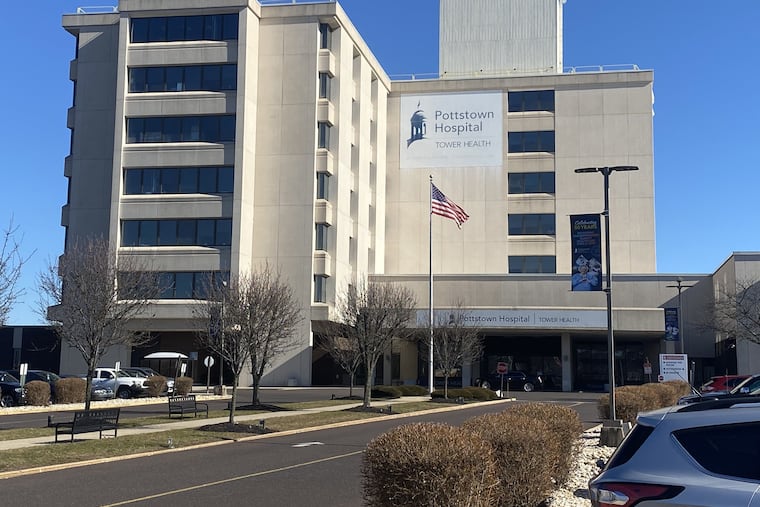Tower Health reported a $27 million operating loss for fiscal 2024, down from $193 million in 2023
The health system expects to complete a refinancing next month that will give it financial breathing room for the next five years.

Tower Health logged a thin $307,000 operating profit in the three months that ended June 30, the Berks County nonprofit reported Thursday. That was the system’s first profitable quarter in five years.
For the full fiscal year, Tower’s operating loss was $27 million, down sharply from $193 million the year before.
Here are the highlights:
Revenue: Tower’s total revenue in fiscal 2024 was $1.96 billion, up 5.5% from $1.86 billion the year before. Revenue included $19.5 million payment from the settlement of a national drug-discount dispute with the federal government. Phoenixville and Pottstown Hospitals — Tower’s two remaining hospitals from its big 2017 expansion — had a 6.5% revenue gain, but still had steep losses.
Expenses: Tower had several notable expenses in fiscal 2024. It took a $2.6 million impairment charge on a land sale and a $7 million charge on an obsolete radiation therapy machine. Citing difficult conditions in medical malpractice, Tower increased its professional liability reserves by $18 million.
Cash reserves: Unrestricted cash reserves improved during the last three months of fiscal 2024, to $162 million on June 30 from $153 million on March 31. That translates to one more day of cash on hand, raising the figure slightly to 31 days from 30.
Notable: Late next month, Tower expects to complete a refinancing of its $1.2 billion in bond debt. The complex deal will eliminate a series of debt retirements Tower was scheduled to make starting in February. Given Tower’s weak reserves, those redemptions would have caused severe financial stress. The organization will also take some new debt that will double its cash reserves to 60 days.
In exchange for giving Tower a break on its repayments, bondholders will get higher interest rates in the future and will get a claim on Tower’s real estate as collateral. Previously, bondholders only had a claim on Tower’s revenue.